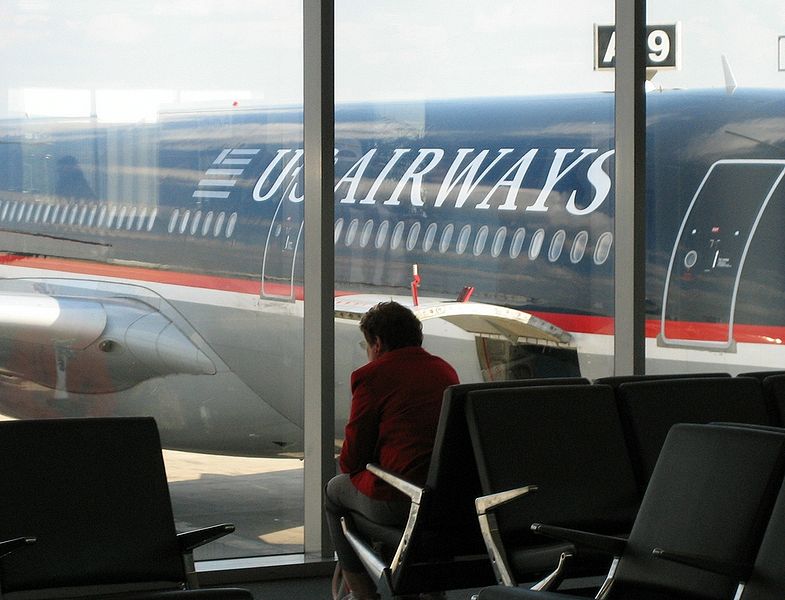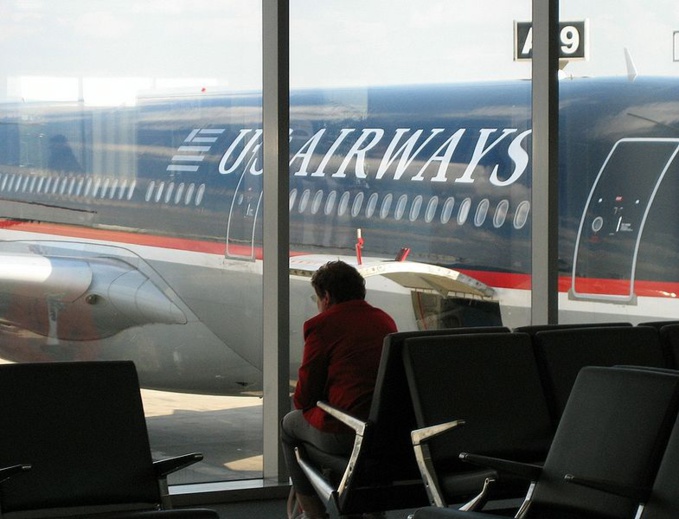The Terrorist Threat
According to officials, the decision to impose these restrictions resulted from an intelligence report that showed threat of a terrorist attack on commercial flights.
"Intelligence agencies estimate that terrorist groups continue to plan attacks on aviation flights using innovative methods, including use of explosives that were illegally carried on the aircraft’s board," the officials said.
James Norton, former deputy head of the Ministry of National Security under the George W. Bush administration, said that such security actions are usually introduced when there is a real threat. He cited a ban on liquids on board an aircraft that confounded plan of terrorists to blow up a plane over the Atlantic using liquid explosives.
It is embarrassing that the UK issued a similar ban, which does not concern four airports - Dubai, Abu Dhabi, Doha and Casablanca. On the other hand, the US ban includes all these destinations. In addition, many aviation officials are wondering whether such a regulation would be efficient enough against a terrorist threat. It should also be noted that Doha, Abu Dhabi and Dubai are major international transit hubs with complex multi-stage security procedures.
Ion-lithium batteries
First, we must take into account electronic devices are not banned completely. It is forbidden to carry on board devices such as laptops, cameras, tablets. This means that they will most likely be stored in the cargo hold with checked baggage. However, this is prohibited by the Federal Aviation Administration. The department indicates a high risk of damage to the aircraft, associated with an explosion or fire due to the battery.
Representatives of the administration say that they are working closely with the Federal Aviation Administration on safety issues, but details are not yet announced. In particular, Michael Mo, Founder and Head of Kulr Technologies, which is developing systems of thermal regulation of batteries, spoke on this topic.
"Ion-lithium batteries are very unstable, on average, one in five million will explode. This statistic is not a question of "if", it's a question of "when"- when one of these batteries explodes," he said. "Therefore, when it explodes, it will be better if there are people nearby who can react and put out the fire."
In addition, lithium-ion batteries are especially dangerous when kept in the luggage compartment, as they can be stored next to particularly explosive substances such as deodorant or hair spray. This only increases the risk of fire and explosion on board.
Protectionism
Three of the 10 airlines affected by the US ban, namely Emirates, Etihad, and Qatar Airways, are fierce competitors to the US domestic airlines -American, Delta, and United Airlines. Therefore, some aren’t surprised that these airlines were included in the list.
A number of analysts emphasize that even though such security measures can be justified, this ban endangers commercial activities of many foreign airlines. However, the administration representatives themselves deny any links between the requirement and competition of American airlines with Middle Eastern ones.
Impact on business
In the short term, this ban will negatively affect activities of the three largest Middle Eastern airlines, as well as Turkish Airlines. Emirates, Qatar, Etihad and Turkish Airlines occupy the first, second, sixth and seventh places respectively in Skytrax’s ranking of the most respected airlines. Since the ban of the US government calls into question the security of airports, these airlines will have to cope with negative consequences and calm the troubled customers. In addition, many employers allow their employees to use laptops on their trips. Therefore, the requirement could result in a fact that many corporate customers will opt for those airlines that are not covered by this ban.
source: washingtonpost.com
According to officials, the decision to impose these restrictions resulted from an intelligence report that showed threat of a terrorist attack on commercial flights.
"Intelligence agencies estimate that terrorist groups continue to plan attacks on aviation flights using innovative methods, including use of explosives that were illegally carried on the aircraft’s board," the officials said.
James Norton, former deputy head of the Ministry of National Security under the George W. Bush administration, said that such security actions are usually introduced when there is a real threat. He cited a ban on liquids on board an aircraft that confounded plan of terrorists to blow up a plane over the Atlantic using liquid explosives.
It is embarrassing that the UK issued a similar ban, which does not concern four airports - Dubai, Abu Dhabi, Doha and Casablanca. On the other hand, the US ban includes all these destinations. In addition, many aviation officials are wondering whether such a regulation would be efficient enough against a terrorist threat. It should also be noted that Doha, Abu Dhabi and Dubai are major international transit hubs with complex multi-stage security procedures.
Ion-lithium batteries
First, we must take into account electronic devices are not banned completely. It is forbidden to carry on board devices such as laptops, cameras, tablets. This means that they will most likely be stored in the cargo hold with checked baggage. However, this is prohibited by the Federal Aviation Administration. The department indicates a high risk of damage to the aircraft, associated with an explosion or fire due to the battery.
Representatives of the administration say that they are working closely with the Federal Aviation Administration on safety issues, but details are not yet announced. In particular, Michael Mo, Founder and Head of Kulr Technologies, which is developing systems of thermal regulation of batteries, spoke on this topic.
"Ion-lithium batteries are very unstable, on average, one in five million will explode. This statistic is not a question of "if", it's a question of "when"- when one of these batteries explodes," he said. "Therefore, when it explodes, it will be better if there are people nearby who can react and put out the fire."
In addition, lithium-ion batteries are especially dangerous when kept in the luggage compartment, as they can be stored next to particularly explosive substances such as deodorant or hair spray. This only increases the risk of fire and explosion on board.
Protectionism
Three of the 10 airlines affected by the US ban, namely Emirates, Etihad, and Qatar Airways, are fierce competitors to the US domestic airlines -American, Delta, and United Airlines. Therefore, some aren’t surprised that these airlines were included in the list.
A number of analysts emphasize that even though such security measures can be justified, this ban endangers commercial activities of many foreign airlines. However, the administration representatives themselves deny any links between the requirement and competition of American airlines with Middle Eastern ones.
Impact on business
In the short term, this ban will negatively affect activities of the three largest Middle Eastern airlines, as well as Turkish Airlines. Emirates, Qatar, Etihad and Turkish Airlines occupy the first, second, sixth and seventh places respectively in Skytrax’s ranking of the most respected airlines. Since the ban of the US government calls into question the security of airports, these airlines will have to cope with negative consequences and calm the troubled customers. In addition, many employers allow their employees to use laptops on their trips. Therefore, the requirement could result in a fact that many corporate customers will opt for those airlines that are not covered by this ban.
source: washingtonpost.com



















